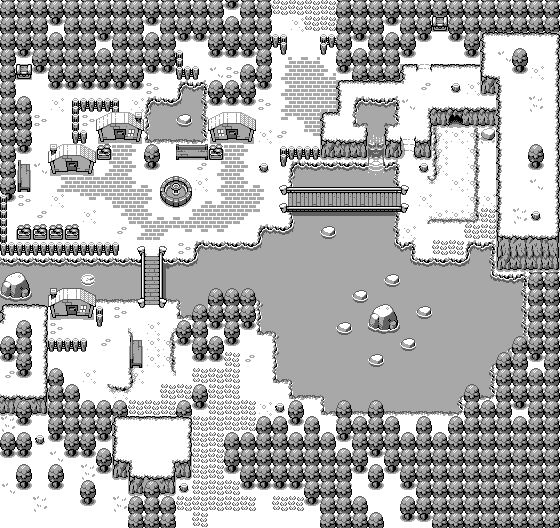I’d like to find a program that would let you make 8 but stule stuff I have photoshop but it is useless for making pixel stuff.
I don’t use photoshop, but I’ve heard you can do pixel art with it, just have to set it up a bit.
I personally use GIMP, which is a free alternative to Photoshop, and it can be set up for pixel art too (I used this tutorial). I’m using it quite comfortably now.
In the old days when I still used Windows I simply used MS Paint  And with quite good results if I can say. Later I used Kolourpaint, which is a free MS Paint clone, and has some additional features - I find it a reasonable mix between completely primitive and very complicated - so maybe give it a try.
And with quite good results if I can say. Later I used Kolourpaint, which is a free MS Paint clone, and has some additional features - I find it a reasonable mix between completely primitive and very complicated - so maybe give it a try.
Anyway, it’s mostly about getting used to whatever program you’re using, no matter how simple or complex.
Personally I prefer to either make my own sprite art or ask for help from artists I know personally because I prefer my games to have a personal touch, but there are times I might use stock art or might use stock art as a base and modify it to suit my needs.
I really like the Link To The Past style tileset:
https://talk.pokitto.com/uploads/default/original/2X/6/6d237071f93c8d8594a8378d26a9ec94f79aaec5.png
Good resources anyway.
KolourPaint looks like the old school Windows '95 paint in terms of UI layout. :P
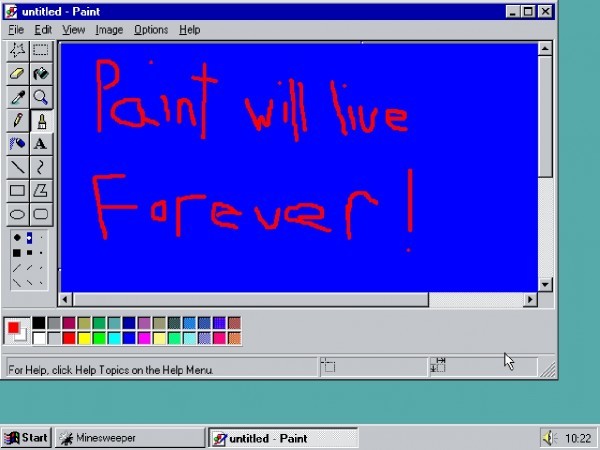
Good times.
I don’t know what to suggest for Mac, but on Windows I use MSPaint.
I have GIMP installed but personally I don’t get on with it for doing sprite art.
I know GIMP runs on Mac though, so you might want to look into it.
I originally installed GIMP because Photoshop was too expensive for my (at the time) student finances.
Later on I tried it on the college computers but couldn’t really get on with it. I find GIMP much easier to use.
This might be the best Zelda-like tileset I have in my favorites (also CC0). (The previews show only a little of it, it’s actually pretty big.)
I love that you can simply download the spritesheet, load it into Tiled and start creating your own small worlds in a matter of minutes 
Also this (reminds me of Arduboy games):
i might aswell give out my own work
stating here and now that these are falling under CC0 public domain licence
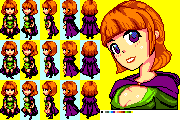

![]()
![]()
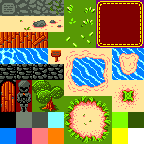
![]()
Wow, these are real beautiful, thank you very much! 
Is that Sheila from Dungeons & Dragons?
there all sprites from games that where made for pokitto, mostly demo’s since there code is old and i might have abandont them for the time
https://talk.pokitto.com/t/game-pokitbeasts-wip-alpha/978
The Pickford Bros are offering some of their old bitmap fonts. Free for people to use in their homebrew games etc…
http://www.zee-3.com/pickfordbros/archive/bitmapfonts.php
Here is an example.
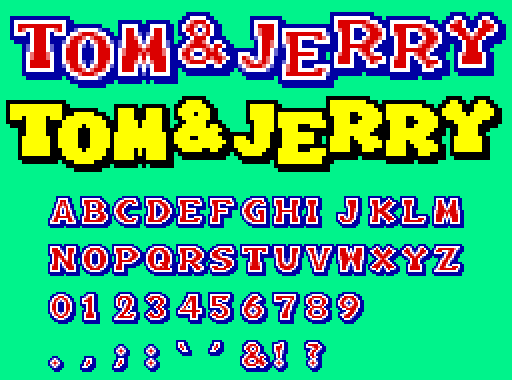
Unfortunately they don’t actually provide a licence so technically those aren’t really ‘free’ in the licencing sense of ‘free’.
I’m sure I’ve had this conversation about my own code recently. But surely the author saying “Feel free to use any of these fonts for whatever purpose you see fit.” is just a legal as a bloated document written in legalese that says the same thing. People shouldn’t require a legal document to give something away for free.
Technically from a legal standpoint, not indicating a licence is usually equivalent to declaring an implicit copyright.
Most legal systems are so geared up for protecting people’s copyright that it’s actually hard to properly waive it (some countries won’t even let you waive it completely, you can only pass on other individual rights).
Usually you have to explicitly state which rights you are giving to the user.
E.g. right to copy, right to modify, requirement to credit the author vs right to not credit the author.
Declaring a licence is actually the easiest way to do that.
Just say “this art is CC BY-NC-SA” and automatically you’re in good legal standing and end users know their rights.
Sure, it’s unlikely that anyone is going to hunt someone down for breaching copyright, but it takes minimal effor to type “my art is released under the CC0 licence” and those words instantly express what rights the user has.
I know it’s for code rather than art, but choosealicence has a good description:
Also, although I’m not his biggest fan, Jeff Atwood has a decent article about it.
Also, from what I have read in the past, Typefaces are not copyright-able for the same reason as clothing. They are considered utilitarian rather than aesthetic, so even if the images used to display the characters could technically be copyrighted, the typeface itself can not be.
Typefaces are under heavy copyright its just that the use of them for users of the software, its gets realy wierd and why you dont see the same exact font on all operating systems
It varies depending on the country.
In England fonts are definitely copyrightable.
In American law typefaces can’t be copyrighted, but typefaces aren’t the same as fonts (which are classed as computer software).
Basically a typeface is like an algorithm and a font is like a piece of software implementing that algorithm. You can’t copyright the algorithm but you can copyright the software.
(Ok, you can patent some algorithms, but let’s not worry about that for this analogy.)
If fonts didn’t have copyright there would be no point selling them because without copyright people could distribute them freely.
Companies have sued because people used their fonts without permission.
But the image files there probably aren’t classed as fonts under the US law definition.
They’re probably classed as images/graphics.
We have to discriminate between typeface and font in this situation.
A font is technically software, whereas a typeface is the description of a character.
I am more than happy to agree that a font falls under regular copyright law and can not be freely distributed for the usual 70-150 years after creation, but a typeface on the other hand is completely different.
For the link I posted, we’re in the clear, simply because of the age of the typefaces (even if you were to count them as fonts). Here in England, there is a 25 year limit on the copyright in this particular case (which seems to be the longest amount of time). Most 8-bit games are this old, if not a lot older, so the majority of 8-bit character sets will be out of copyright even if it were to be upheld.
An image file is not necessarily a typeface though.
It might be classed as something else.
I could have been wrong before, it might be classed as a font because the image still tells the computer how to draw the font (in a sense).
It seems that typeface is a more abstract concept.
It all depends on whether the images are classed as fonts or as images/art.
Even if the 25 year rule applied, that would only make certain typefaces free for use, because some of the games the fonts are from were published (and presumably created) in 1994 or later.
This is exactly why a licence is a good thing.
If there was a licence on it then we wouldn’t be sat here trying to discern whether these are ‘fonts’, ‘typefaces’ or ‘images’ because the licence would make the usage unambiguous.
The legalese is only there for lawyers, usually most licences have a non-lawyer readable version as well (as all CC licences do).
I might contact them and ask them about it at some point.
For now, I doubt either of us would be able to pin down what the legal situation actually is.
Exactly, but that’s not the case, because (warning: opinion)
Summary
the Intellectual Property laws and fines are extremely strict and wrong.
Speculations - it may be true in some/most/none situation/countries/courts (the same as “fair use”). The truth is unless the law is 100% (± epsilon) clear, there’s a non-zero chance (that gets bigger depending on the number of lawyers on the opposite side) you’ll get sued and lose.
So basically we need a license for everything, or else we’re playing a lottery. Again, personal opinion:
Summary
We should push to changing this.
Answering to this will most likely lead to a rant, so you might as well create a new topic for this  (We already have one on the Arduboy forums.)
(We already have one on the Arduboy forums.)
They shouldn’t, and in some places they don’t. That’s the problem: different countries have different views on how permission should be granted. In Brazil, for example, you can’t legally give up certain rights over a work (they’re nontransferable, presumably to protect creators from companies with abusive contracts) and word-of-mouth is just as binding as a written contract.
For software, licences typically do two things: provide a clear description of how it should be used (giving permission to use the software without getting sued by the author), and warranties (protecting the author from getting sued). Simplified like this it all sounds silly, and it truly is, but in a world where companies sue each other over the silliest things the consequences can get serious. Ideally, licences wouldn’t have to exist at all.
Art rarely needs to be packaged with a warranty so software licences (especially the GPL) are an odd choice. Posting an artwork and saying “Feel free to use this as you see fit” is probably just as valid/binding legally as a text file written in legalese… depending on where you and the author are.
The legalese typically helps in making everything crystal clear and you shouldn’t have to contact the author. As an example: the Pickford Bros’ site leaves an ambiguity on whether the fonts should be used by non-indies. On OpenGameArt it’s common to see posts like: “I’d like to use this. How do I credit you?” A proper licence that requires attribution typically wouldn’t leave doubts on how to do so.
